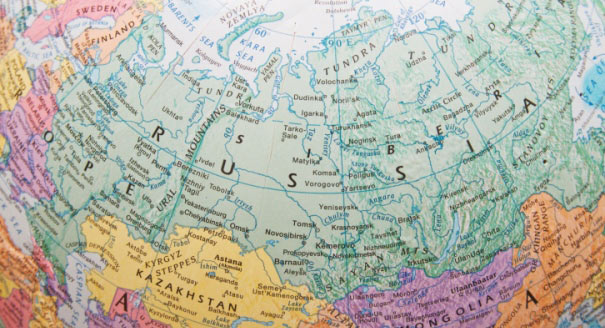For an organization that aspires to have regional or even global ambitions, the EU has played an insignificant role in helping resolve the Ukraine crisis.
The union has ceded responsibility for the crisis to the leaders of France, Germany, Ukraine, and Russia. These leaders first discussed Ukraine during World War II commemorations in Normandy in July. They have chosen to continue this four-way dialogue.
This new format is one of two recent trends that reveal much about the EU’s ambiguous attitude toward the Ukraine crisis and Russia.
Poland is notably absent from the talks on Ukraine. Germany has sidelined Poland’s role, despite the extremely close ties the two countries have forged over the past several years. Not surprisingly, France and Russia didn’t object to Warsaw being relegated to the backseat. It’s as if Poland’s attempts to help develop the EU’s Eastern Partnership and, later, its efforts to mediate during this year’s antigovernment demonstrations in Kiev have been forgotten.
Nor are the EU institutions involved in any substantial way in the four-party discussions. That only confirms how the big member states call the shots over the EU’s foreign policy.
This reflects badly on the EU’s outgoing foreign policy chief, Catherine Ashton. On her watch, the EU has been almost completely absent during the Ukraine crisis. Just as U.S. President Barack Obama delegated Merkel to deal with Putin, so it seems that the EU’s foreign policy chief has left it up to Berlin and Paris to strike a deal with Moscow and Kiev over Ukraine.
The EU has been almost completely absent during the #Ukraine crisis.Tweet This
Merkel is not naive when it comes to dealing with Putin. She has consistently taken a tough stance on sanctions and on suspending Russia from the G8 group of industrialized nations. Merkel recently made clear that she was in no hurry to lift the measures against Moscow even though a ceasefire has been agreed to in eastern Ukraine. That ceasefire is extremely shaky, and the Organization for Security and Cooperation in Europe has reported violence and deaths in the area over the past few days.
Just days before the Milan summit, in a statement published on the Kremlin’s website, Russia said it would pull back the 17,600 troops that have been deployed along its border with Ukraine. It was a cynical gesture aimed at persuading EU leaders to consider when they should lift the sanctions.
The second revealing trend—and one that must surely worry those EU leaders and foreign ministers who understand the threat Russia poses to Eastern Europe—is the role of the European Commission.
The decision by EU Commissioner de Gucht to delay the #DCFTA with Ukraine was a big mistake.Tweet This
Last month’s decision by Karel de Gucht, the EU’s trade commissioner, to delay the implementation of a major free-trade accord with Ukraine until December 2015 was a big mistake. The deal was originally expected to come into force later this year.
The aim of the agreement was to boost bilateral trade in goods and services; but much more importantly, it was also about pushing through reforms designed to bring Ukraine’s trade rules and standards in line with the EU’s. In short, it was about beginning the modernization of Ukraine’s economy.
After talks with Ukraine and Russia—and complaints from Moscow that the agreement would hurt its trade with Ukraine—de Gucht postponed the accord. That EU ambassadors and foreign ministers did not publicly object to this decision by the commission was surprising, to say the least.
And what about the antitrust case that the European Commission is preparing against Gazprom? As Russia’s state-owned energy giant, Gazprom is one of the Kremlin’s most effective foreign policy instruments. The company has long been able to use its energy dominance to blackmail or bully EU member states in Eastern and Central Europe and other countries that depend on Russian gas.
Lithuania was one of those countries that three years ago sent Joaquín Almunia, the EU’s competition commissioner, a formal complaint about Gazprom’s pricing practices. The commission then launched an antitrust investigation into Gazprom, with several EU member states expecting and hoping that the EU’s executive would charge the firm with anticompetitive practices.
Almunia said on September 23 that the commission was on the verge of charging Gazprom with anticompetitive behavior. He said the commission would issue a statement of objections, or a charge sheet, that sets out how Gazprom broke EU competition rules.
#Ukraine needs as much support as possible for reforms and an EU that sticks to its own rules and agreements.Tweet This
But countries expecting Gazprom to be charged anytime soon may be disappointed. Energy experts suspect that the commission is reluctant to press ahead with the charges now because that might complicate ongoing negotiations that the energy commissioner, Günther Oettinger, is having with Russia and Ukraine over debts that Kiev owes to the firm. If that is the case, then the commission is not only backpedaling on its own legislation, it is also losing a major legal lever over Gazprom.
None of the above bodes well for Ukraine. What the country needs now is as much support as possible for reforms—and an EU that sticks to its own rules and agreements.








